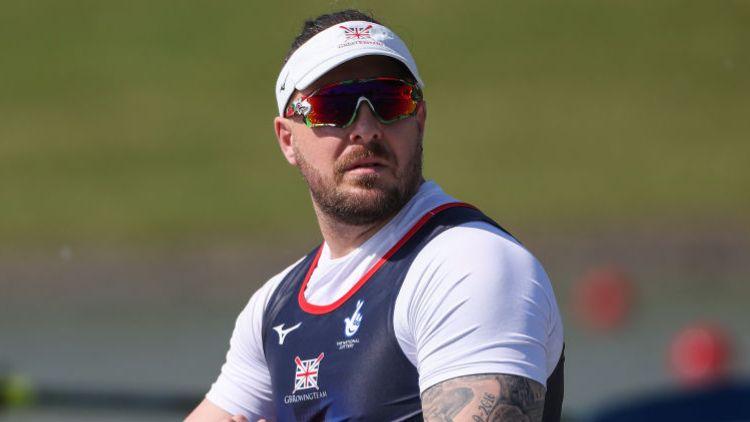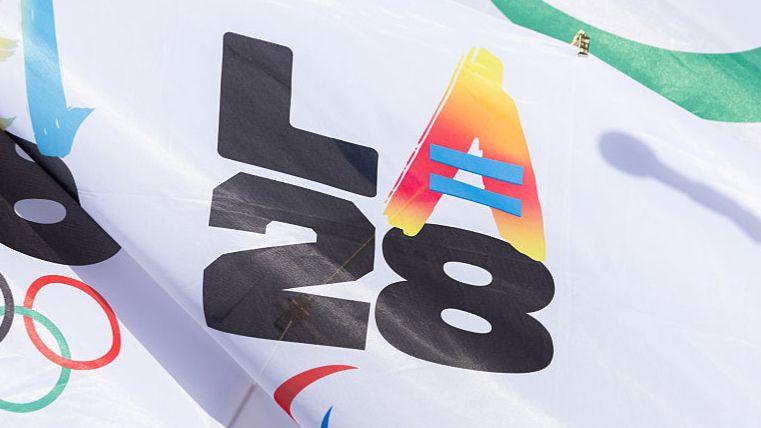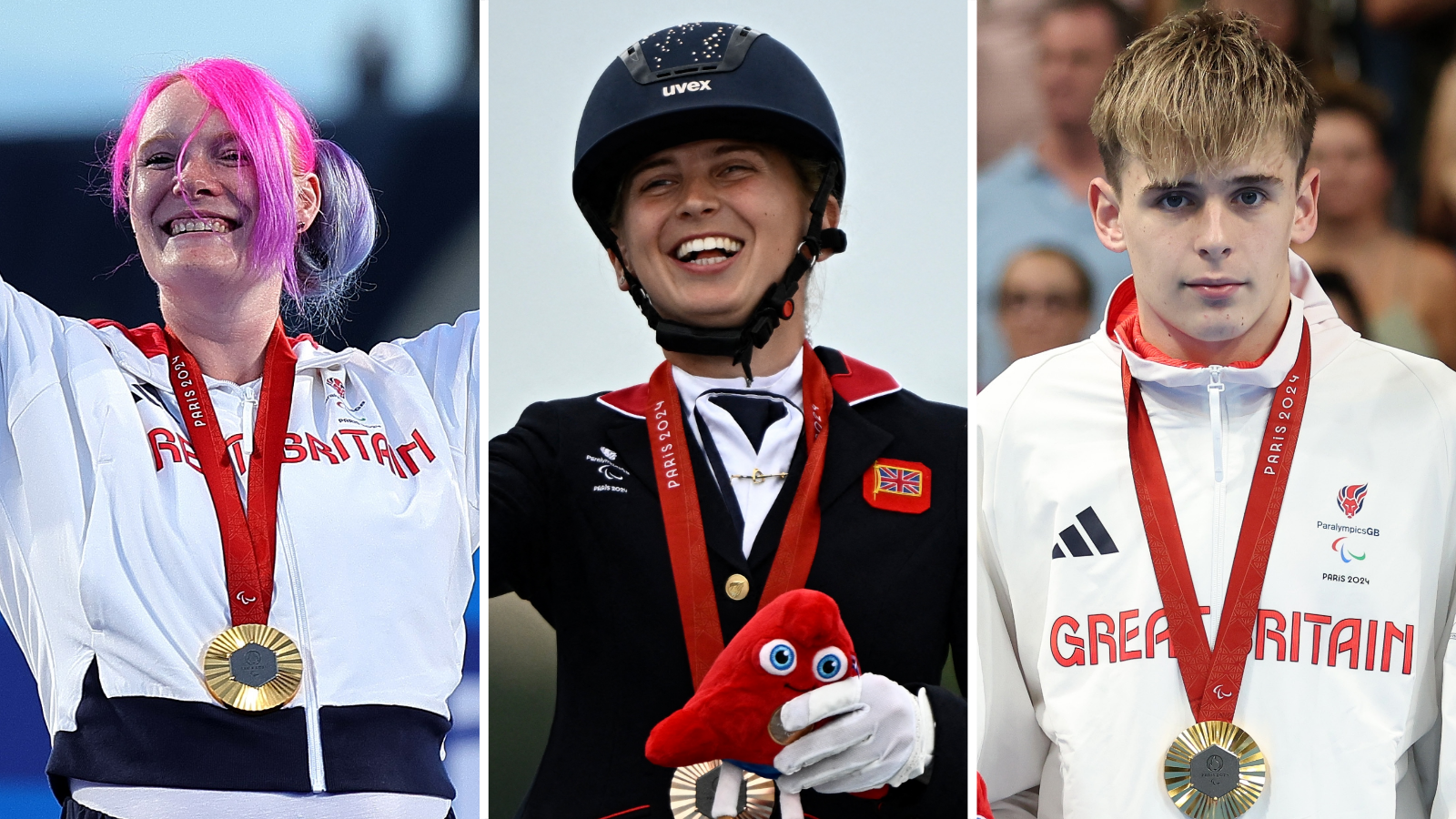World record 'pretty surreal' for Pritchard
Pritchard's journey from rehab to rowing champion
- Published
Paralympic champion Ben Pritchard says it still feels "pretty surreal" after adding another impressive chapter to his story by powering to European gold and breaking the PR1 world record.
The 33-year-old Welshman, from Mumbles, became the new PR1 European rowing champion in Plovdiv, Bulgaria in May.
That success came just nine months after he topped the podium at the Paris Paralympics.
Despite feeling he was still deep in winter training, Pritchard produced a stunning performance in his first race since the Games.
"It was pretty surreal," Pritchard told BBC Sport Wales. "The Europeans were really early in the season for us – I still felt I was in my winter block, doing long miles with no speed work. I was quite nervous going to the start line."
He need not have been, as Pritchard powered through the field to claim the record-breaking victory.
"I was going down the track thinking, 'this is pretty quick – I'm not sure how quick'," he said.
"It wasn't until I crossed the line, looked at the screen and saw the time that I realised it was a world record. That's pretty special. I definitely didn't expect it."
A new chapter in Wales
Pritchard has been training away from the GB squad this season, having made the decision to relocate back to Wales.
He is now based on the River Tawe and training at David Lloyd Swansea, meaning he has stepped away from the centralised National Training Centre in Caversham, Reading.
"I've taken a risk," he said. "But it's made a massive difference – I'm a happier person. Being closer to Wales, closer to family, it's where I belong.
"When I moved to Reading, I only went there for rowing. I never made it my home."
While the move has paid off in terms of performance and personal wellbeing, it has not come without challenges.
Training without the support of the full GB set-up has meant relying on volunteers and travelling long distances to get in the boat.
"It's not easy," Pritchard added. "I rely on volunteers to help me in and out of the water. I've got a volunteer coach. I have to drive 45 minutes to training.
"But I chose this path and because it's more difficult, I know I have to get the absolute most out of every session."

Ben Pritchard produced a time of 8:40.38 to claim his first European title
Road to success
Pritchard's road to the top of para-rowing is a story of determination shaped by adversity. In 2016, his life changed forever following a cycling crash that left him paralysed from the ribcage down.
His recovery began at the National Spinal Injuries Centre at Stoke Mandeville Hospital, where he was introduced to adaptive sport – and to rowing.
"When you're told you'll never walk again, it's really heavy. I was a 24-year-old bloke trying to absorb that," he said.
"I kind of shut myself off to it. Then I went to one of the weekly sports sessions and it was cancelled. I balled with tears. That was the moment I really realised the impact of it."
Sport quickly became a "saving grace" for Pritchard.
"I've always lived my life through goals," he explained. "First it was, how do I get the best rehab possible? Then, how do I return to life, return to work, return to family life – and return to sport."

The Los Angeles Paralympic Games will be held in August 2028
Eyes on LA 2028
Now back on top of the European podium and with a world record to his name, Pritchard's sights are firmly set on this year's World Championships in China and the Los Angeles 2028 Paralympic Games.
"It would be really cool to be a three-time Paralympian – and hopefully a two-time champion," he said. "Fifteen per cent of the world's population have a disability and I think just one per cent make it to a Games – even fewer win a medal.
"So to be able to go three times, that's pretty special."
For Pritchard, rowing has been more than winning medals. It has helped him recover, find himself and stay focused.
Now, as one of the best in the world, he is showing that tough times can push you forward - not hold you back.
Related topics
- Published8 September 2024
